Related Research Articles

Mary Mason Lyon was an American pioneer in women's education. She established the Wheaton Female Seminary in Norton, Massachusetts, in 1834. She then established Mount Holyoke Female Seminary in South Hadley, Massachusetts, in 1837 and served as its first president for 12 years. Lyon's vision fused intellectual challenge and moral purpose. She valued socioeconomic diversity and endeavored to make the seminary affordable for students of modest means.
Kenneth T. Jackson is an urban, social, cultural historian, author, and academic. He is the Jacques Barzun Professor Emeritus of History at Columbia University, where he has also chaired the Department of History.
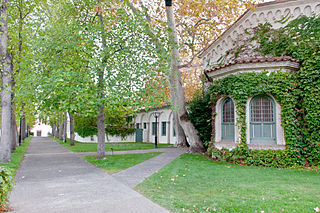
Women's colleges in higher education are undergraduate, bachelor's degree-granting institutions, often liberal arts colleges, whose student populations are composed exclusively or almost exclusively of women. Some women's colleges admit male students to their graduate schools or in smaller numbers to undergraduate programs, but all serve a primarily female student body.
Horowitz is a Levitical Ashkenazi surname deriving from the Horowitz family, though it can also be a non-Jewish surname as well. The name is derived from the town of Hořovice, Bohemia. Other variants of the name include Harowitz, Harowicz, Harrwitz, Harwitz, Horovitz, Horvitz, Horwicz, Horwitz, Hourwitz, Hurewicz, Hurwicz, Hurwitz, Gerovich, Gurovich, Gurevich, Gurvich, Gourevitch, Orowitz and Urwitz.

Martha Carey Thomas was an American educator, suffragist, and linguist. She was the second president of Bryn Mawr College, a women's liberal arts college in Bryn Mawr, Pennsylvania.
John Brinckerhoff "Brinck" Jackson was a writer, publisher, instructor, and sketch artist in landscape design. Herbert Muschamp, architecture critic of the New York Times, stated that J. B. Jackson was "America's greatest living writer on the forces that have shaped the land this nation occupies." He was influential in broadening the perspective on the "vernacular" landscape.
Phoebe Doty was an American prostitute and madam. In 1821, she started her career in a bordello in the Five Points neighborhood of New York City. Over the next three years, she accrued $600 in personal belongings. For the next decade or so, Doty moved from house to house, eventually settling in a brothel on Church Street. There she was valued at $800. Doty had an adopted daughter, Sal Wright, who also became a prostitute.
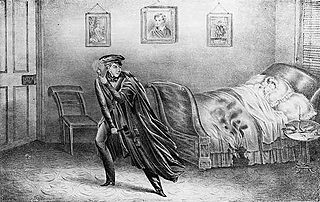
Helen Jewett was an American prostitute in New York City who was brutally murdered. One of her regular clients, Richard P. Robinson, was tried and sensationally acquitted of her murder. Jewett's murder and Robinson's subsequent trial was one of the first sex scandals to receive detailed press reporting, notably in the New York Herald. Public opinion was divided between those who felt that Jewett had deserved her fate, and others claiming that Robinson had escaped justice through powerful connections.
William Joseph Snelling was an American adventurer, writer, poet, and journalist. His short stories about Native American life were the first to attempt to accurately portray the Native Americans living on the plains and are among the first attempts at realism by an American writer. Snelling's short story collections were among the earliest in the United States. He wrote for New England and New York City periodicals on subjects such as American writing, gambling, and prison conditions.
"Lefkowitz", also written as "Levkowitz" or "Lewkowicz", is a surname of German-Jewish & Polish-Jewish origin, meaning "son of Levko".
David Lefkowitz was a rabbi who led Temple Emanu-El in Dallas, Texas from 1920 to 1949, after having worked at Temple Israel in Dayton, Ohio. He opposed the rise of the Ku Klux Klan, which had been revived in 1915; it was strongly opposed to immigrants from eastern and southern Europe who were Jews and Catholics. He was a Founding Executive Committee Member of the Dayton Branch of the National Association for the Advancement of Colored People (NAACP).
In the early colonial history of the United States, higher education was designed for men only. Since the 1800s, women's positions and opportunities in the educational sphere have increased. Since the late 1970s and early 1980s, women have surpassed men in number of bachelor's degrees and master's degrees conferred annually in the United States and women have continuously been the growing majority ever since, with men comprising a continuously lower minority in earning either degree. The same asymmetry has occurred with Doctorate degrees since 2005 with women being the continuously growing majority and men a continuously lower minority.
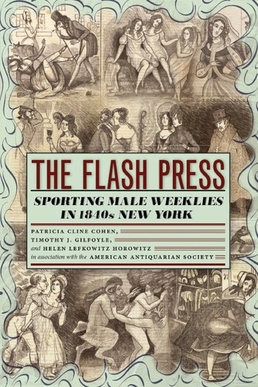
The Flash Press: Sporting Male Weeklies in 1840s New York is a book written by Patricia Cline Cohen, Timothy J. Gilfoyle, and Helen Lefkowitz Horowitz, in association with the American Antiquarian Society, about the sexual underground of 1840s New York City.
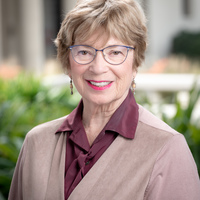
Maryanne Cline Horowitz is an American Historian of The Renaissance and of History of ideas. She is Professor of History at Occidental College, Associate of the UCLA CMRS Center for Early Global Studies, and an Affiliate of the USC-Huntington Early Modern Studies Institute. Horowitz is best known as the author of Seeds of Virtue and Knowledge, which won the Jacques Barzun Prize in Cultural History in 1999 from the American Philosophical Society. Dr. Horowitz served as Editor-in-Chief of the New Dictionary of the History of Ideas which the American Library Association division RUSA declared an Outstanding Reference Source 2005. She is Co-Editor, Bodies and Maps: Early Modern Personifications of the Continents . She is an innovator in women's and gender history and was a Research Associate in Women's Studies in Religion at the Harvard Divinity School, 1979-80.

Woodhull & Claflin's Weekly was an American weekly newspaper first published on May 14, 1870, by sisters Victoria Woodhull and Tennessee Claflin. It was among the first publications to be published by women. It lasted until June 10, 1876.
Laurence Russ Veysey (1932–2004) was a historian best known for his history of higher education, The Emergence of the American University. He also wrote The Communal Experience.
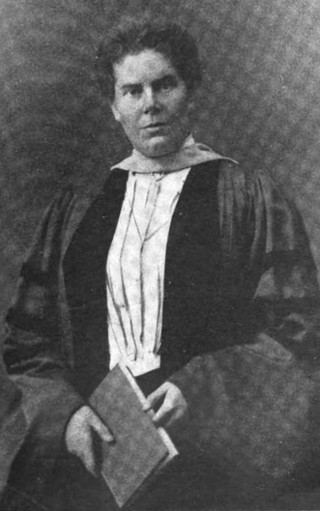
Caroline Hazard was an American educator, philanthropist, and author. She served as the fifth president of Wellesley College, from 1899 to 1910.
Timothy J. Gilfoyle is an American historian from New York who is a professor of history at Loyola University Chicago, where he teaches American urban and social history.
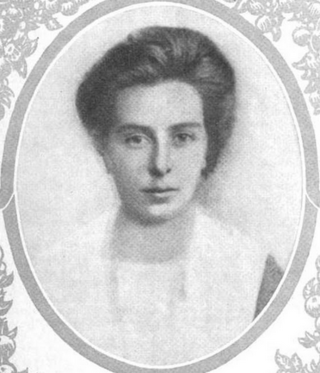
Emma Carola Woerishoffer was an American labor activist and settlement worker.
Gail Skoff is a photographer known for her handcolored prints. Much of her work focuses on landscapes and food. She was a 1976 recipient of a fellowship from the National Endowment for the Arts, and several of the prints resulting from fellowship are held by the Smithsonian American Art Museum. Her works are also held at the Biblioteque Nationale in Paris, the Center for Creative Photography in Tucson, and the Oakland Museum of California.
References
- ↑ VIAF: "Horowitz, Helen Lefkowitz"
- 1 2 3 4 5 6 "Collection: Helen Lefkowitz Horowitz papers | Smith College Finding Aids". findingaids.smith.edu. Retrieved 2020-06-11.
 This article incorporates text available under the CC BY 3.0 license.
This article incorporates text available under the CC BY 3.0 license. - 1 2 3 "Horowitz, Helen Lefkowitz 1942-". Encyclopedia.com. Retrieved 2020-06-11.
- 1 2 3 4 "Faculty - Helen Horowitz". Smith College. Retrieved 2020-06-11.